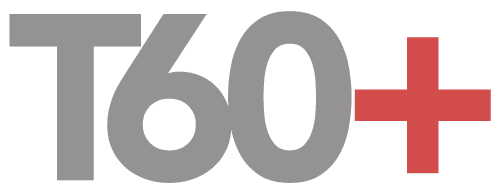Was your mother wrong?

Did you know that loss of coordination could be a protein problem? And to think Mother use to say eat your vegetables, could she have been wrong?
QUESTION: Is your first meal of the day dominated by carbohydrates and low on protein, if so you are like many older adults? DID YOU KNOW: Older adults have a higher protein requirement than younger adults to minimize sarcopenia, or that muscle wasting that occurs as you age? More striking is that 1/3 of adults over 50 years of age fail to meet the minimum RDA for protein.
Low protein intake can decrease your muscle strength and ability to build muscle. This decrease in muscle strength can lead to an increase in mortality and disability.
What are some of the symptoms you could experience when you don’t have enough protein.
- Balance problems, difficulty walking, and falls.
- Loss of muscle coordination.
These may be due to your muscles not being strong enough and/or not getting enough exercises. We are almost a year into the pandemic and our lives have changed dramatically, particularly around our food and exercise.
Protein is key
Protein is a key essential nutrient for maintaining and building muscle as we age. It is one of the three main macro nutrients (protein, carbohydrates and fat) that make up the food we eat. Protein is so important that without it, we can become seriously malnourished. Think back to the pictures you have seen about starving children with those big bellies and very skinny legs.
Visualize the old very thin person that is hunched over walking down the street, or even someone you know who is very thin (we do love to be thin), but weak and protein deficient (we will talk about skinny/fat in another post).
When older adults have low protein they become frail. Once weakened he/she can be at risk.
How much protein do we need?
The Current RDA Requirement for Protein is 0.8 g/kg (.36 g/lb)
Example:
A 150-lb (68 kg) person would need 68 x 0.8, or about 54 grams of protein a day.
A 200-lb (91 kg) person would need 91 x 0.8, or about 73 grams of protein a day.
New studies suggest older adults need 2x more protein
New studies are suggesting that for older adults, the 0.8 g/kg should be doubled to 1.6 g/kg.
My Example

My weight is 128 lbs. To convert lbs to kg you divide lbs/2.2 = kg. Thus, 128/2.2 = 58 kg.
My weight is 58 kg and I am trying to double the RDA protein requirements as I am an “older adult”.
My protein requirements are: 58 x 1.6 = 93 grams of protein/day.
As you can see, my protein requirements are greater than a 200 lb middle aged adult. As an older athlete, I participate in 1/2 marathons and triathlons so I personally want to increase my protein to support and improve my muscle strength. Also, I am a woman with some osteopenia and studies have shown that older women who eat more protein will have a higher bone density. My goal is to avoid a hip fracture and be strong and fit well into my 80s and 90s.
More protein + resistance training = win for bone density
How do you know if you are getting enough protein
It is hard to eat enough protein, when you are not focusing on it – I don’t normally eat red meat and most people think of red meat when they think protein.
There are some good options other than meat, including wild salmon (you can also get a good dose of Omega 3 as well), organic chicken and turkey and don’t forget eggs.
Additionally, many legumes, grains and vegetables are high in protein. These include black and kidney beans, chickpeas, quinoa. Nuts and seeds can be high in protein and include pumpkin seeds, peanuts, almonds, flax seed, etc.
Dairy products such as Greek yogurt and cottage cheese are high in protein, as is tofu. Lots of choices are available.

For a listing of protein rich foods, please see additional references at the end.
The old way of eating and the new normal
My usual breakfast was a cup of coffee and a flax seed muffin, sounds healthy, yes? Let’s break it down. My wonderful flax seed muffins have 4 grams of protein (that is per ½ muffin). And when you read the label carefully, the carbs are 28 grams and there is also sugar. Compare that to one cup of Greek yogurt, which has 8 grams of protein per cup or 1 egg which has 6 grams of protein. Even a little “salmon benedict” may be a better protein choice as 3 ounces of salmon has 22 grams.
Can you begin to think of creative choices for your breakfast?
Don’t save it all for dinner
Don’t skew your protein intake to the end of the day. Muscle protein synthesis is 25% higher when consumed at all three meals, so space it out.
Bottom Line: Getting an adequate high-quality protein at each meal combined with physical activity may delay or slow muscle wasting.
Will it hurt my kidneys
There are concerns that too much protein is not good for you and may cause kidney damage. Eating more protein does increase the workload of your kidneys, but if your kidneys are healthy and you stay hydrated, it should not be a problem. ALWAYS CHECK WITH YOUR PHYSICIAN FOR HIS/HER RECOMMENDATIONS
References
Site that lists foods which are high in protein
http://www.todaysdietitian.com/pdf/webinars/ProteinContentofFoods.pdf
Websites that discuss protein
https://www.precisionnutrition.com/will-a-high-protein-diet-harm-your-health

This is an eye opening blog…and also makes me
Think seriously what I am eating…when I eat and …how to make my shopping more reflective of my protein intake.
Thanks Ania: We often are not aware of our protein and how important it is for building muscle and strength. Of course, please check with your healthcare provider to be sure that you can follow these guidelines.
Hi Sandi,
Ania and I discussed this topic after you first posted it, because with my kidney issue I am restricted in protein consumption. I just got my new lab results and see the nephrologist tomorrow. I will ask for more info in light of this, and hope to be able to add back the nutrition I had been accustomed to eating before the autoimmune attack. Whole grains, beans and some forbidden vegetables. I miss avocados, artichokes, tomatoes and potatoes!
I’m also limited on fluids, essentially 1 liter a day. So I think dehydration is very likely. I’m adding all this to my list of questions tomorrow. Very glad to be back in class! Thank you
Ah yes, kidney issues and protein are challenging. It is always best to work with you healthcare providers to determine the right amount of protein to keep you strong, but not too much to stress the kidney. I am happy that you are adding this to your list of questions to discuss with your healthcare provider. You are very wise to write down your questions and be ready to have a conversation. It’s a pleasure having you return to class.